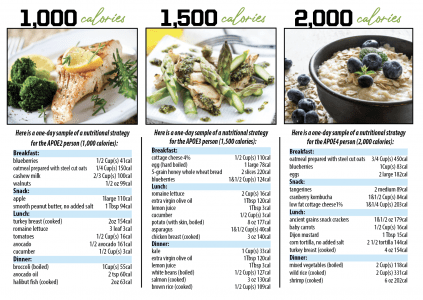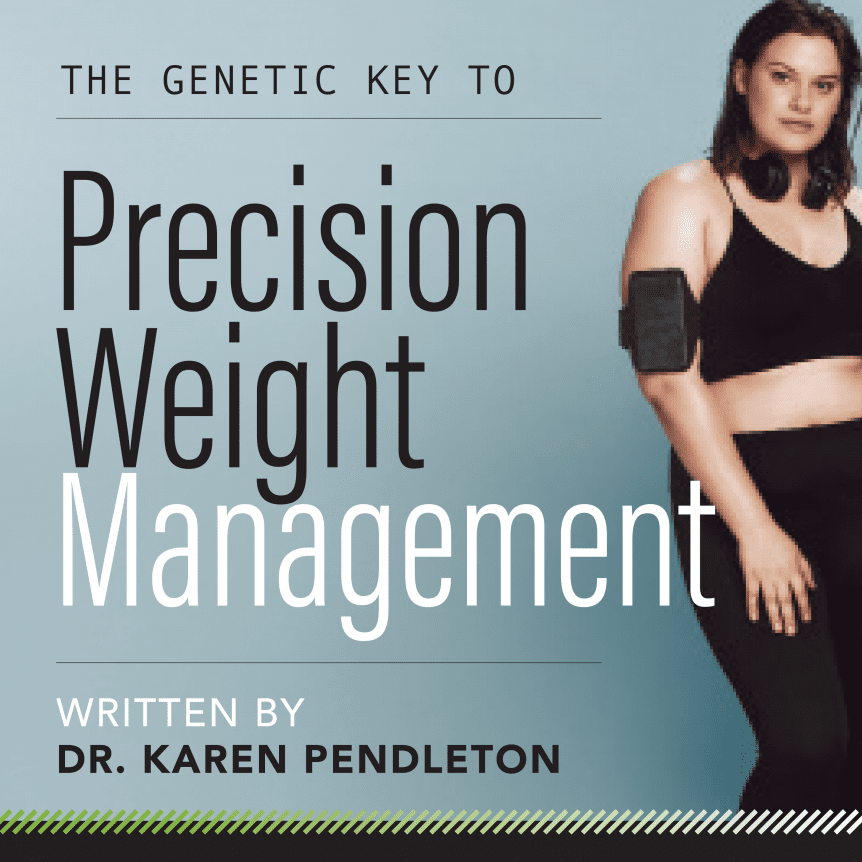Are you confused about the numerous diets on the marketplace? For example:
Ketogenic, Paleolithic/Primal Blueprint, Mediterranean, DASH (Dietary Approaches to Stop Hypertension), MIND (mix of DASH and the Mediterranean), Gluten-Free, Anti-Inflammatory, Atkins, The Zone, Vegetarian, Vegan, Raw Food, Flexitarian, Pescetarian, Nutritarian, South Beach, Weight Watchers, Low-Fat, Low-Carbohydrate, Low-Calorie, Whole 30, Ornish, TLC (Therapeutic Lifestyle Changes), Mayo Clinic, Volumetrics, HMR (Home Meal Replacement), Biggest Loser, CICO (Calories In Calories Out), Dukan, and etc…
There are literally thousands of diets. Some are for losing weight, while others are for gaining weight, lowering cholesterol, controlling blood sugar, controlling blood pressure, living a long and healthful life, and many other reasons, i.e., auto-immunity/anti-inflammatory and etc.
What if your genetics played a role in your overall health? What would you choose to eat? Would this make a difference in how you live your life?
Many people try different diets and with varying degrees of success. Some get great results.
Others throw up their hands. Have you ever wondered why certain diets work for some but not all people? There is a scientific rationale, and it may absolutely be influenced by your genes.
My father and mother-in-law passed away with heart disease and dementia. What if I could have made a difference in the outcomes?
One of my patients is an athlete. He recently struggled with weight loss. In the athletic arena, there is the high carbohydrate/low-fat group. Then, there is the low carbohydrate/high fat group. Or let’s eat a lot of protein and no carbohydrates or fats.
Well, in my studies the last two years, I learned about some interesting genetic studies.
- The Heart Attack Gene
- Atrial Fibrillation Gene
- APOE Gene (Apolipoprotein E)
While the heart attack gene is important, the genetic test which interested me was the APOE gene. On a simple level, there are three groups: APOE2, APOE 3 and APOE4.
Most people (60 – 75%) are APOE3. And so, maintaining a balanced healthy diet, like the Mediterranean diet, is the acceptable choice for this group.
The challenge involves individuals with APOE2 (~5%) and APOE4 (~20%).
An APOE2 person requires a relatively high fat (30% – 35%) /low carbohydrate diet.
My athlete’s genotype is APOE2. A high carbohydrate diet does not benefit him and creates increased inflammation. After starting a healthy and relatively high fat / low carbohydrate diet, he lost six pounds in one week. And, he had a significant improvement in his energy level.
The APOE4 person is more complex. These individuals need to watch their fat intake, thus limiting healthy fats to no more than 20% of the daily caloric intake.
Here is an example: With 1,500 calories a day, the fat intake should not exceed 300 calories.

Also, APOE4 individuals need to be vigilant about foods that cause inflammation, including the elimination of alcohol. This APOE4 group can be at higher risk for dementia and Alzheimer’s disease.
Are you worried about silent heart disease or stroke?
- Heart disease (heart attack and/or stroke) is the leading cause of death for men, women, and people of most racial and ethnic groups in the United States.
- One person dies every 36 seconds in the United States from cardiovascular disease.
- In the United States, someone has a heart attack every 40 seconds.
- About 1 in 5 heart attacks are silent—the damage is done, but the person is not aware of it.
- Someone in the United States has a stroke every 40 seconds; and every 4 minutes, someone dies of stroke.
- Stroke is a leading cause of serious long-term disability. Stroke reduces mobility in more than half of stroke survivors age 65 and over.
Concerned about dementia or Alzheimer’s disease?
- Someone in the world develops dementia every 3 seconds.
- More than 6 million Americans are living with Alzheimer’s disease. By 2050, this number is projected to rise to nearly 13 million.
- And, in the U.S. Alzheimer’s and dementia deaths have increased 16% during the COVID-19 Pandemic.
What if I had known this sooner? Could I have made a difference in the outcome for my father and mother-in-law?
But, now I have the tools to help other people. If you know your genetics, then the changes you make in your lifestyle can have a great impact on your overall health.
In terms of weight management, how you eat and how you exercise (in short, your lifestyle) plays an important role between your genetic make-up and your ultimate body weight. With variations in genes, each of us responds differently to diet and exercise, thus, it is possible to tailor nutrition and workout plans accordingly.
By understanding how your body metabolizes macronutrients, i.e., carbs, fats and protein, consider investigating your APOE Gene status.
This will allow for a more precise nutritional plan. Previously, a lot of these decisions would have been based on guesswork. This approach can offer you the lean, healthy physique you desire, along with securing your brain and heart health.
In closing…know your APOE Gene!!! Be proactive by aligning yourself with a knowledgeable healthcare provider that offers this and other comprehensive testing.
If I can be of any service, please reach out to me by completing the Healthspan Quiz at www.drkarenpendleton.com
DISCLAIMER: All of the information found in this article is based on the opinion of the author Karen M. Pendleton, M.D. The information is meant to motivate readers to make their own health decisions after consulting with their own health care providers. All readers should consult a doctor before making a health change, especially those that are related to a specific diagnosis or health condition. No information in this article should be relied on in determining a diet, making a medical diagnosis or determining a treatment for a medical condition. The information in this article is not intended to replace a relationship with a qualified healthcare practitioner and is not intended as medical advice. No information in this article should be used to diagnose, treat, prevent or cure any disease or condition.

